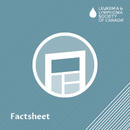You are not alone.
Know that the blood cancer community is here to support you every step of the way.
What happens next?
Talking to family and friends
Telling your children
Speaking with your employer
Preparing for appointments
Understanding lab results
Asking for a second opinion
Coping with fear, anxiety and stress
Taking care of your body
Managing fatigue and cognitive challenges
Understanding insurance and organizing finances
Experiences of others with myeloma

Resources on multiple myeloma
Myeloma
Learn about Myeloma, how it is diagnosed, an overview of treatments and what happens next.
Smouldering Multiple Myeloma (SMM)
Smouldering multiple myeloma (SMM) is an inactive type of multiple myeloma that shows no symptoms. SMM is a rare, indolent (slow-growing) type of multiple myeloma (MM). For some people, it may never become active myeloma; for some other people, it may take years to develop.
Blood and Marrow Stem Cell Transplant
Get an overview of what your blood and bone marrow do; understand the different types of stem cell transplants; learn who is eligible for a stem cell transplant; find out how to prepare for a stem cell transplant; learn about recovery.
Understanding clinical trials
Get an overview of clinical trials, understand them, how they are planned, evaluate benefits and risks of participating, address concerns and what to ask.
Types of blood cancer treatments
You or your loved one has been diagnosed with a type of blood cancer. Cancer treatment can be complex, with different types of treatment options available for some blood cancers. What are they and how do they work? This fact sheet will help you Learn about the different treatment options available, Understand each type of treatment and how it can help, Prepa…
Understanding Genetics
Genetics plays an important role in understanding cancer and treatments for cancers. What is genetics and how is it involved in cancer?
Shared Decision Making: Discussion tool for people with a blood cancer
You or your loved one has been diagnosed with a type of blood cancer. You will be making important decisions with your healthcare team.
Maintenance Therapy: Staying in remission after treatment
Maintenance therapy is treatment given after the first (primary) therapy used to manage your cancer, or lower your risk of the cancer coming back. Some people may use maintenance therapy for a long time. This type of therapy can include drugs, vaccines, antibodies, or hormones.
Maintenance therapy can be used after a stem cell transplant for a blood cancer …
“I'm still here": Living with multiple myeloma for 12 years
David Johnson, of BC, first diagnosed with the disease in 2012 in his early 50s, has experienced 2 relapses, 2 stem cell transplants, and participated in a clinical trial for CAR T-cell therapy. Dr. Anthony Reiman, medical oncologist in NB, talks about advances in MM treatment.
Managing Multiple Myeloma: How Emerging Therapies Can Help
Dr. Ismail Sharif provides an overview of current and emerging treatment options for multiple myeloma, and share information on how to manage symptoms and treatment-related side effects.
Understanding Multiple Myeloma
Learn about Multiple Myeloma, what it is and how it relates to Leukemia.
Managing Myeloma: Diagnosis, treatments, side effects, etc. / 2023 Myeloma Week
In this webcast, Dr. Anthony Reiman, medical oncologist at Saint John Regional Hospital, will provide an overview on the latest information on the diagnosis, treatments and side effects of myeloma and answer your questions about myeloma.
Myeloma Research – What’s new? / 2023 Myeloma Week
In this webcast, Dr. Donna Reece, hematologist at Princess Margaret Cancer Centre/University of Toronto, talk about the current and new treatments for myeloma. She is also sharing what is being done to help improve the quality of life myeloma patients.
All resources
Access all fact sheets, guides, podcast, videos and other resources to learn everything from disease symptoms, statistics and treatment options.

















